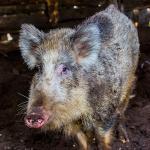Among the many lessons of COVID has been how poorly scientists and the general public understand our biology.
parasites
It is a prime time of the year for sports. The World Series is just about to get underway, and we are just about in the middle of football’s regular season.
Though the sciences of microbiology and public health have largely made infectious disease an afterthought for most people in the developed world, microbes have not gone away.
Drinking raw milk or consuming raw dairy is 840 times riskier than consuming the pasteurized version.
The myth that "natural is better" is widespread and pernicious. Though it can manifest in relatively harmless ways (e.g., consuming overpriced organic food), the relentless pursuit of all-things natural can be dangerous or even deadly.
As Kramer from Seinfeld demonstrated, sponging off of other people can be a successful life strategy. The same is true for many members of the Animal Kingdom.







